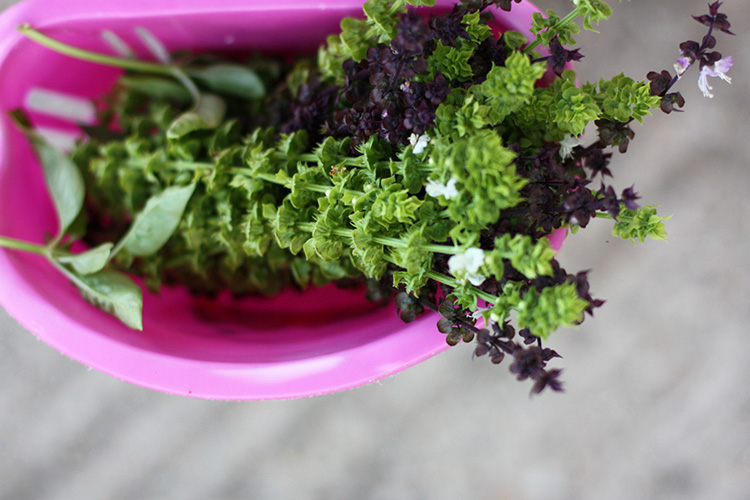Which Basil Seeds?
Basil seeds used for eating are the seeds of the plant of sweet basil, Ocimum basilicum. They are also called Thai basil seeds, falooda, Sabja, Sabza, Tukmaria Selasih aur.
This is different from the plant purple basil, Ocimum tenuiflorum, which is also called Tulsi. The leaves and holy basil oil are used in Ayurvedic medicine for many purposes, but usually not the seeds.
sweet basil seeds are of a similar size chia seeds. The difference is basil seeds are completely black and teardrop while chia seeds are typically shades of gray mottled brown and have a more rounded shape.
As chia, basil seeds become gelatinous when immersed in water. They are used in beverages in many Asian countries for thickening and health.
It has been reported that basil seeds have antioxidant, anticancer, antiviral, antibacterial, and antifungal properties antispasmodic.
Very little scientific research has been done on basil seeds to date. This may be because there is not a large market for seeds. However, a preliminary investigation seems promising.
The blood sugar regulation: According to Sutter Gould Medical Foundation, basil seeds can help control blood sugar in people with type 2 diabetes.
Digestion Help: When soaked, fiber in the outer layer of basil seeds becomes mucosa appearance Some studies suggest that this fiber has a effect. Basil seeds are also used to relieve stomach cramps, bloating, constipation and indigestion.
Appetite Control: It is suggested that fiber soaked seeds has the effect of making you feel fuller. This could help reduce appetite and help you lose weight.
Respiratory aid: Traditionally, basil seeds are used to treat colds, flu, cough and asthma.

